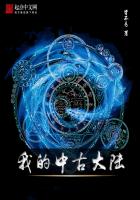Change which is not accidental on the other hand is not to be found in everything, but only in contraries, in things intermediate contraries, and in contradictories, as may be proved by induction. An intermediate may be a starting-point of change, since for the purposes of the change it serves as contrary to either of two contraries: for the intermediate is in a sense the extremes. Hence we speak of the intermediate as in a sense a contrary relatively to the extremes and of either extreme as a contrary relatively to the intermediate: for instance, the central note is low relatively-to the highest and high relatively to the lowest, and grey is light relatively to black and dark relatively to white.
And since every change is from something to something-as the word itself (metabole) indicates, implying something 'after' (meta) something else, that is to say something earlier and something later-that which changes must change in one of four ways: from subject to subject, from subject to nonsubject, from non-subject to subject, or from non-subject to non-subject, where by 'subject' I mean what is affirmatively expressed. So it follows necessarily from what has been said above that there are only three kinds of change, that from subject to subject, that from subject to non-subject, and that from non-subject to subject: for the fourth conceivable kind, that from non-subject to nonsubject, is not change, as in that case there is no opposition either of contraries or of contradictories.
Now change from non-subject to subject, the relation being that of contradiction, is 'coming to be'-'unqualified coming to be' when the change takes place in an unqualified way, 'particular coming to be' when the change is change in a particular character: for instance, a change from not-white to white is a coming to be of the particular thing, white, while change from unqualified not-being to being is coming to be in an unqualified way, in respect of which we say that a thing 'comes to be' without qualification, not that it 'comes to be' some particular thing. Change from subject to non-subject is 'perishing'-'unqualified perishing' when the change is from being to not-being, 'particular perishing' when the change is to the opposite negation, the distinction being the same as that made in the case of coming to be.
Now the expression 'not-being' is used in several senses: and there can be motion neither of that which 'is not' in respect of the affirmation or negation of a predicate, nor of that which 'is not' in the sense that it only potentially 'is', that is to say the opposite of that which actually 'is' in an unqualified sense: for although that which is 'not-white' or 'not-good' may nevertheless he in motion accidentally (for example that which is 'not-white' might be a man), yet that which is without qualification 'not-so-and-so' cannot in any sense be in motion: therefore it is impossible for that which is not to be in motion. This being so, it follows that 'becoming' cannot be a motion: for it is that which 'is not' that 'becomes'.
For however true it may be that it accidentally 'becomes', it is nevertheless correct to say that it is that which 'is not' that in an unqualified sense 'becomes'. And similarly it is impossible for that which 'is not' to be at rest.
There are these difficulties, then, in the way of the assumption that that which 'is not' can be in motion: and it may be further objected that, whereas everything which is in motion is in space, that which 'is not' is not in space: for then it would be somewhere.
So, too, 'perishing' is not a motion: for a motion has for its contrary either another motion or rest, whereas 'perishing' is the contrary of 'becoming'.
Since, then, every motion is a kind of change, and there are only the three kinds of change mentioned above, and since of these three those which take the form of 'becoming' and 'perishing', that is to say those which imply a relation of contradiction, are not motions: it necessarily follows that only change from subject to subject is motion. And every such subject is either a contrary or an intermediate (for a privation may be allowed to rank as a contrary) and can be affirmatively expressed, as naked, toothless, or black. If, then, the categories are severally distinguished as Being, Quality, Place, Time, Relation, Quantity, and Activity or Passivity, it necessarily follows that there are three kinds of motion-qualitative, quantitative, and local.















